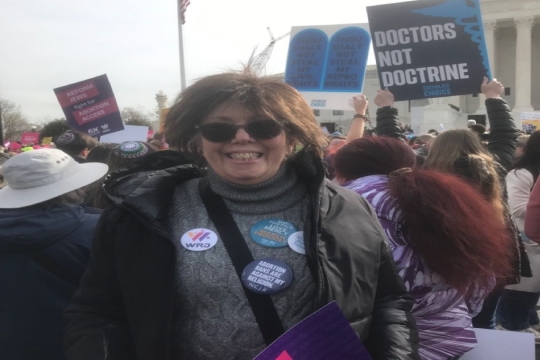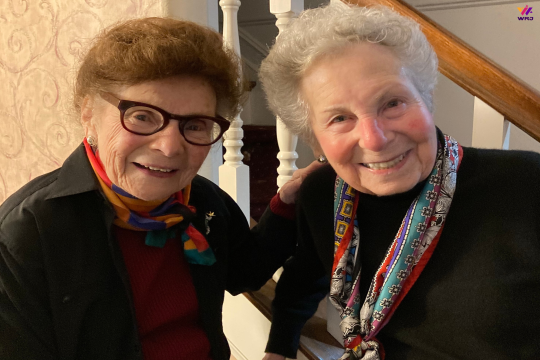
In seventh grade, I started going to a new school. This urban public high school was completely different from my private Jewish day school. At Rockwern Academy, it was not unusual to hear about second homes and fancy video game consoles, things my family could not afford. But at Walnut Hills High School, people asked me if I was rich.
My dad went to Walnut Hills, too, and he had a teacher who used to say: “No amount of happiness in the world can buy money.” Yes, you read that right: “no amount of happiness in the world can buy money.” When I first heard these words, the inverse of the common adage, “money can’t buy happiness,” I scratched my head. Growing up, I was taught that there were more important things than money, material possessions, and wealth. But I also grew up lucky to have enough of all these things. We live in a world where money is needed to live; it is ignorant and privileged to deny the value of money and material things.
In this week’s Torah portion, Parashah Naso, we read the famous “Priestly Blessing.” In between discussions of those who take vows and consecration of the tabernacle, God tells Moses to bless the Israelites with these words:
יְבָרֶכְךָ֥ יְהוָ֖ה וְיִשְׁמְרֶֽךָ׃
יָאֵ֨ר יְהוָ֧ה ׀ פָּנָ֛יו אֵלֶ֖יךָ וִֽיחֻנֶּֽךָּ׃
יִשָּׂ֨א יְהוָ֤ה ׀ פָּנָיו֙ אֵלֶ֔יךָ וְיָשֵׂ֥ם לְךָ֖ שָׁלֽוֹם׃
May Adonai bless you and keep you
May Adonai shine God’s light upon you be gracious to you
May Adonai bestow favor upon you and grant you peace
(Numbers 6:24-26)
Some of us know these words from “The Blessing of the Children” at Shabbat dinners. But what do they really mean? Let us focus on the first line:
יְבָרֶכְךָ֥ יְהוָ֖ה וְיִשְׁמְרֶֽךָ׃
May Adonai bless you and keep you
(Numbers 6:24)
Our sage, Rashi, draws on the Midrash, saying that yevarechecha (may God bless you) means, “may your property increase” and veyishmerecha (may God keep you) means, “may you be protected from robbers.” God bestows wealth upon us and then protects it from robbery. Another rabbinic sage, Ibn Ezra, provides a slightly different view: “may God increase your life and your wealth... and God will protect what God has increased so that no one steals it.” Ibn Ezra draws on Rashi’s reasoning that God blesses us with wealth and protects that wealth from being stolen. But Ibn Ezra he adds to what God blesses us with: not just wealth, but life as well.
We need wealth to live in this world, but we cannot thrive with wealth alone. To say it another way, we all need basic necessities to live, but there is more to life than the “bare necessities.” We need “bread,” but we need “roses,” too.
In the first several decades of the 20th century, Rose Schneiderman – who helped to popularize the term, “bread and roses” – fought for both the life and dignity of American working women. In 1912, Schneiderman delivered a powerful speech advocating for women’s suffrage, saying:
What the woman who labors wants is the right to live, not simply exist – the right to life as the rich woman has the right to life, and the sun and music and art. You have nothing that the humblest worker has not a right to have also. The worker must have bread, but she must have roses, too. Help, you women of privilege, give her the ballot to fight with.
Schneiderman considered the vote a powerful tool that women could use to fight for both bread and roses. And she was not afraid to remind wealthier women that working women deserved as much as them: sustenance for the body as well as the soul.
Rose Schniederman left a lasting legacy: she helped to push forward women’s suffrage, lead the Women’s Trade Union League, and shape national labor legislation under the Roosevelt administration. She inspires and reminds me that the work of organizing matters, that those of us with privilege have a responsibility to support justice for all, and that the world we are fighting for is one of beauty.
Happiness cannot buy money and money cannot buy happiness, but together we can fight – and sing – for what we all deserve: “Our days shall not be sweated from birth until life closes / Hearts starve as well as bodies, give us bread, but give us roses.”
Shirah Kraus is a Rabbinic-Education student at HUC in Cincinnati and Los Angeles.
Related Posts

Andrea Stillman: A WRJ Leadership Spotlight

